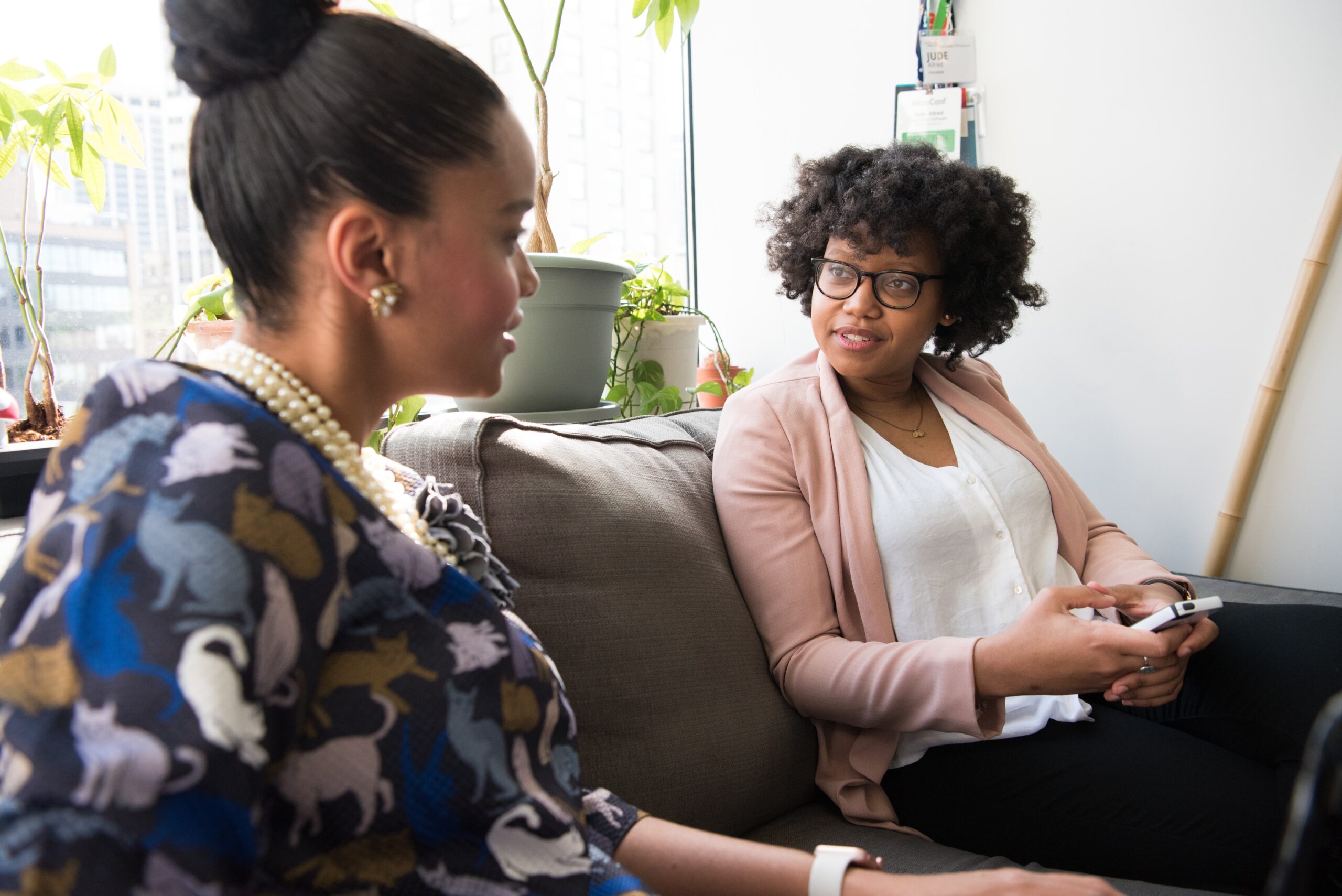Over the years, I have been told, “ Don’t be emotional”, “Limit your project meetings, people don’t need that amount of contact” and “Don’t talk about your accomplishments”. The feedback by my male managers and peers was telling me to stop using my strengths of sensitivity, relationship building and team management, and advocating for myself – to be less than myself.
I know many other women hear the same thing and think that they need to change themselves to fit into the dominant culture.
Then I came across this article talking about the “Feminine” values that can give tomorrow’s leaders an edge — values like being collaborative and expressive. Out of the 10 values listed, eight were seen as feminine!
So instead of changing ourselves, I say lead with our strengths
Recently I spent the afternoon with 13 women at the UX Australia conference, discussing how we can lead with our strengths.
In this workshop, we focused on reframing:
- Self-advocacy, not promoting
- Inner vision, not inner critic
- Relationships, not networking
Self-advocacy, not promoting
Women struggle with promoting ourselves in our work. From childhood we are told to be good girls, to work hard at school, get the marks and we will be rewarded. And we are…at school and university.
But there’s a difference at work. At work, moving forward in our careers is not just about putting your head down and doing the work. Work is a combination of developing networks, positioning ourselves in the right place to get the right work, asking for what we want, and playing the game. Women need to do work that is meaningful to their careers, not just the busy work. Instead we stick to the busy work because we feel it is in our control, and gives us that sense of ticking the boxes — the equivalent of good marks at school.
From my perspective, we need to get better at advocating for ourselves at work, being confident in the work we do, showing the effectiveness of our work, and the progress of our teams. Many women consider this ‘promoting ourselves’; it’s not. It ensures that we are considered for the pay rise, the next promotion and the career-defining projects.
The way to reframe promotion is to consider it as self-advocacy.
We advocate all the time for others; be it our children, team, community, or parents. Last year my elderly mother broke her hip. I had to use all my powers of advocacy for her in the hospital and aged care system, ensuring she got the support she needed — be it physiotherapy, house cleaning or rehabilitation. She needed me to take her needs into account, and to be a strong, calm, persistent advocate for her.
Women need to do the equivalent for ourselves; find the strong, calm and persistent voice that says I need this change in my career and asks for it. We need to ASK, not wait.
Inner vision, not inner critic
Over the last year, I have run 3 different workshops with Women in UX. When I’ve asked the women what’s stopping you, the top answer is Imposter Syndrome.
My answer is, “YOU ARE ENOUGH! I believe in you.”
But I am only in their world periodically; their inner critic is there all the time.
Taking an exercise from Tara Mohr’s book, Playing Big we went on a journey to meet our inner women, the one from 20 years ahead. She is a welcoming figure who provides an alternative to the inner critic; a strong voice that comes from experience, compassion and fortitude.
When I see my future self, there is an energetic woman who welcomes me into a room with two seats facing each other. She provides me with warmth, strength, and advice; advice that I am enough and that I am on the right path inviting people to sit, discuss, grow and be guided by me.
I go back to her when I feel out of sorts and need grounding; when I go through failure and realise that I need perspective, “This too will pass, I will get through.”
Every woman needs to find that inner compassionate voice, not an inner critic who puts her down and says she is an imposter. The inner voice who tells her she is enough, believes in her through thick and thin, and tells her she can do what she wants.
Relationships, not networking
Think of the relationships you have forged over the years at work; people you’ve worked with, the ones you connected over a shared understanding at a conference, and the ones who support you via a Slack channel.
This is different to networking. As one woman said to me earlier this year, “Networking make me think of a bunch of guys standing around, swapping business cards. It feels slimy.”
I reframe networking to developing work relationships; people who we meet, connect to, help, and debate ideas. Some may be strong friendships — forged over hard projects and deadlines; others are emerging — finding a shared connection over a coffee during a conference or event. But none are slimy or fake.
When we lead with our strength of developing relationships, we lead with our authentic selves. One where we don’t expect payback, or cosy up to someone for what they can do for us. Instead developing shared connections with others help all of us to be successful in our work; we have their backs and they have ours.
Working with these women is inspiring. Within the course of the afternoon, one woman rang up a group she belongs to, and told them she didn’t want to do a talk, one she was dreading to do again. She wanted to do another talk and wanted someone less experienced to do the intro talk; she advocated for what she wanted.
We have it in ourselves to lead our teams and our UX practice, using strengths that already exist within ourselves. We need to give ourselves permission to be who we are and lead with our strengths. We are enough!
Photo by [email protected] on Unsplash.
Latest.

5 simple (but powerful) ways to shine in your design interview.
Job Seeker, Design

How to demonstrate the value of your design team in 2025
Thought Leadership, Design, Industry Trends, Leadership

Ace your interview: Words to watch out for.
Job Seeker




